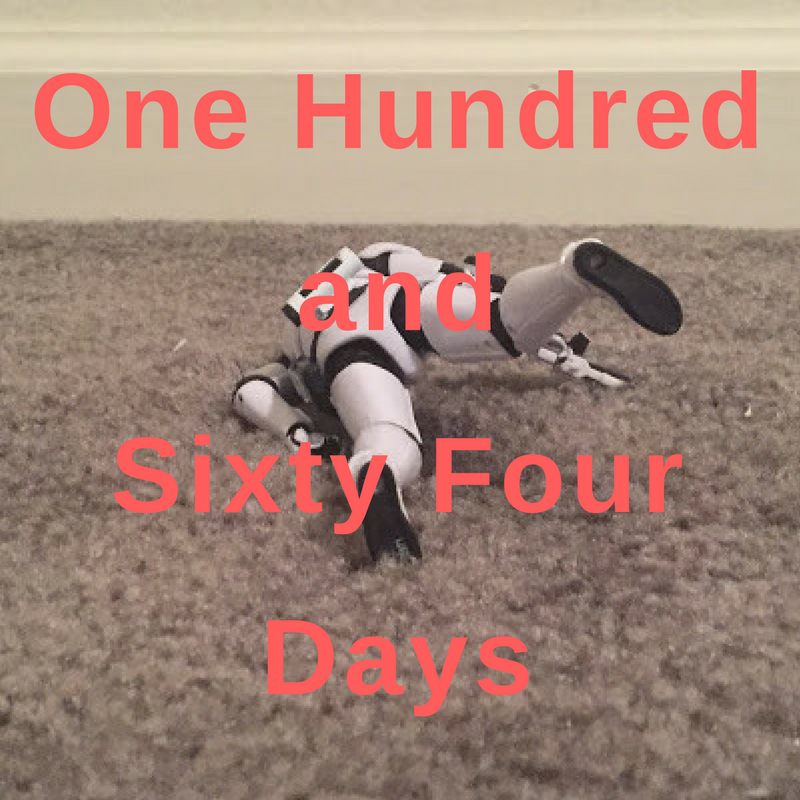
A lot of people gave up on REM about the time this album came out. They lost a drummer between 1996's rather ominous New Adventures in Hi-Fi and Up. Losing Bill Berry meant, in a word, that the rock band had lost its rock. What was next? There were a lot of people who were simply confused: why go on after losing such an integral member? REM always advertised themselves as a true democracy - equal songwriting credits, equal participation. Longtime fans got to know each member's particular contribution to the band over the course of the decade-and-a-half since the release of the Chronic Town EP. Berry was, appropriate to his position as the drummer, the foundation. Whenever things got too strange or abstruse, he was always there to pull them back to the basics. He's why the group followed up the relatively stately Out of Time and Automatic For the People with the rollicking Monster.
Also, on a purely subjective level, he always struck me as being singularly important to the band's sound on account of the fact that he was the first member of the band who really knew what the fuck he was doing. Go back and listen to Murmur, if you have it handy. There are some great, truly great songs, but who's the real “All-Star”? Peter Buck's guitar playing is rudimentary, Mike Mills bass playing is already melodic but nowhere near as confident as it would become, and Stipe's vocals were, well, they were certainly like nothing else. But I still think, as great as all these elements were, they would have sounded pretty murky and unappealing if they hadn't had Berry's explosive drumming underneath. Without his crisp drumwork, the band would have probably sounded a lot more like the Cure than Gang of Four or Pylon. (As it is, you can certainly still hear the Cure on Murmur, particularly Three Imaginary Boys and Seventeen Seconds, but it's the rhythm section, as well as the bright sound of Buck's guitar, that raises the early material so far above these immediate influences.)
So, after what I just said, how do I approach their first Berry-less recording? Well, the short answer is that it took me a long time. My friends will attest to the fact that my original reaction to Up was violently negative - it didn't sound like REM, really, and even if that alone wasn't necessarily a deal-breaker, it just sounded weird. (It doesn't help in that regard that the album opens with the one-two punch of "Airportman" and "Lotus", two songs that could not be more dislike each other. Starting off the album with, alternatively, the most electronic sounding and the most rock songs on the whole disc was probably more than most casual listeners could deal with.) But then, over the next couple years (yes, I said years) I went back to the album a few times, and each time I did my antipathy lessened. Eventually, I began to listen to it out of more than mere dutiful curiosity, and actually began to enjoy it. Finally I realized that it had become one of my very favorite REM albums - what had seemed strange and uncharacteristic on first or second listen had revealed itself as subtle and positively demure. It's a shy album, in that it does require a bit of effort to get into. But once you do, the rewards are great.
Not everything on it is perfect - while it's nowhere near as patchy as the schizo Out of Time, it's still got a lot of material on it that many fans won't easily warm to. The thing is, I'm sure if you asked REM fans to poinpoint their least favorite tracks, they'd probably all give you different answers. Myself, I have never really warmed to "Lotus", dismissing it as a hangover from New Adventure's strange high desert glam vibe - although I don't hate it near as much as I used to. "At My Most Beautiful" is a Pet Sounds pastiche, and while it doesn't fall flat, it's doesn't really do anything more than merely announce it's influence and shuffle off unobtrusively. (Interestingly, they would continue the Beach Boys vibe on 2001's Reveal, to much more satisfying results on tracks like "Beachball" and "Beat A Drum".) But even if they aren't my favorites, I can't imagine the album without either of them - part of the reason why Up works so well is that it is practically overstuffed. It's a dense album, filled with rockers and ballads and dirges and even strange electro tracks, and part of the fun is working through the thicket to get a feel for each individual song in relation to each other.
The songwriting on Up is as strong as anything the band had done since Automatic -- particularly the handful of plaintive ballads that form the album’s spine. “You’re In the Air” is one of the best love songs the group has ever recorded, definitely in the vein of Out of Time’s better tracks. “Walk Unafraid” is a slow-burning rocker that foreshadows some of Stipe’s worse tendencies as a lyricist – the unpalatable, clumsy self-help jargon that marred Reveal and served as one of the primary factors behind the absolute failure of Around the Sun - but here manages to overcome the “inspirational” overstep with a strong rhythmic hook. Ultimately, however, the strength of the album primarily rests on the trio of downtempo chamber-songs that bring the album to a close – “Diminished”, “Parakeet” and “Fails to Climb” (with the lo-fi vignette “I’m Not Over You” wedged between the first two). Stipe’s later lyrics can often cloy and drag, but this is some of the best work of his career – as different from the abstruse poetry of the early IRS albums as can be possibly conceived, but raw and sincere in a fashion that could almost be called “emo” (that is, back when “emo” meant less screaming and more crying). It’s easy to see how this approach ultimately led them astray – after all, Around the Sun was solely composed of somber balladry with heartfelt lyrics. But Around the Sun was simply horrible, bereft of tunes, rhythm or palatable lyrics. On the contrary, listeners with the patience to appreciate the primarily somber, minor-key work being done on Up will come away greatly satisfied.
So, what about Bill Berry? It is to REM’s credit that they didn’t just go out and find a hot-shot hired gun to fill Berry’s drum kit off the bat, a la the ill-fated Jason Newstead. Berry’s departure left the group flat-footed, and Up is a tentative album because of this. They take some chances they might not otherwise have taken if they hadn’t already been yanked out of their proverbial “comfort zone”. Eventually they did find another drummer, Bill Rieflin, but it took the band ten full years to figure out how to best incorporate another full-time percussionist. This year’s Accelerate is, accordingly, their tightest album since New Adventures, harkening back to the clean, albeit slightly sterile sound of 1987’s Document. Up, however, is not a confident record, but this vulnerability is downright endearing from a group that had once been hailed as "America's Best Rock & Roll Band" by Rolling Stone.
Moving past the album’s inaccessibility, its density, its vulnerability, and its stylistic variety, Up is revealed to be one of the most consistently interesting, endearing and intimate recordings in the band’s catalog. It’s the sound of a group actively working against its own strengths, not merely because they want to do something new but because, due to circumstances, they feel they have to.





No comments :
Post a Comment